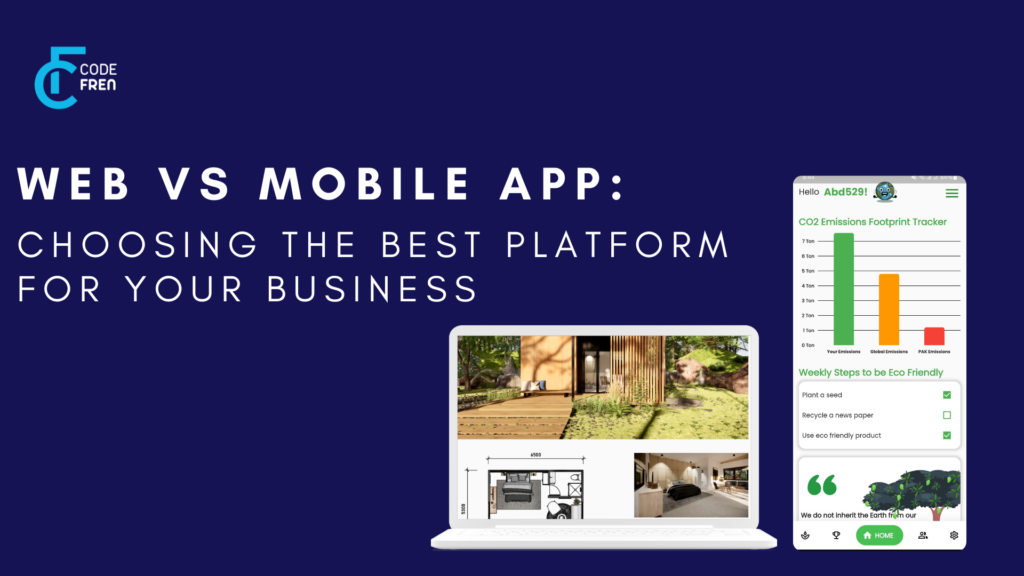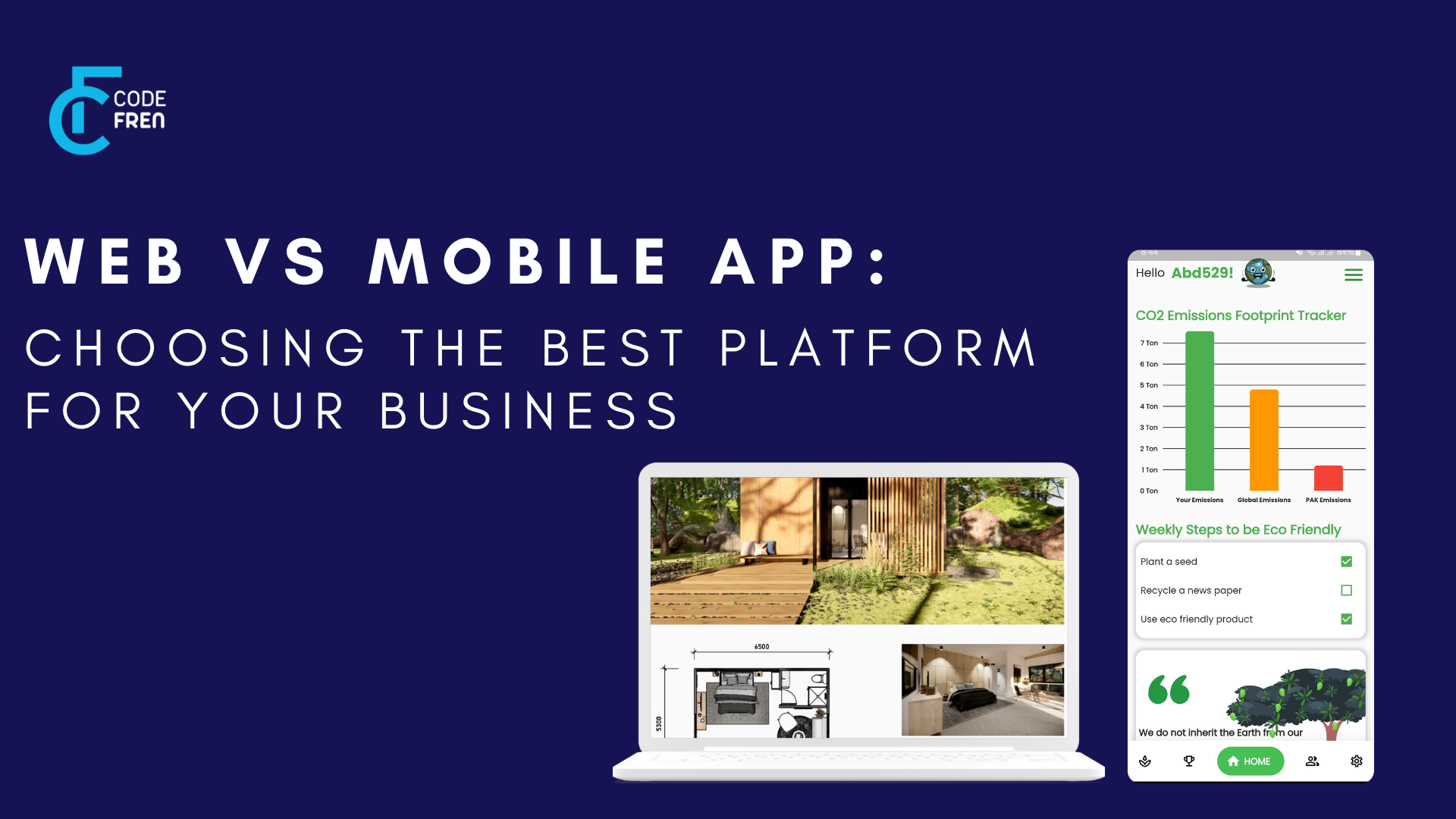Web vs Mobile App? In today’s digital age, businesses face a crucial decision when expanding their online presence. Should they invest in a website, a mobile app, or both? Each platform offers unique advantages and drawbacks, making it essential to make an informed choice. In this blog, we’ll explore the advantages and disadvantages of web and mobile apps, helping businesses determine the most suitable approach for their needs.
Web vs Mobile App
Advantages of Websites
1. Accessibility for All:
- Example: Amazon
Websites are universally accessible via browsers, making them ideal for reaching a broad audience, including desktop and mobile users. Amazon’s website is a prime example of this inclusivity, catering to millions of users worldwide.
2. Cost-Effective:
- Example: WordPress
Creating and maintaining a website can be cost-effective, especially with platforms like WordPress. It’s an excellent choice for small businesses and startups looking to establish their online presence without substantial upfront investments.
3. Search Engine Visibility:
- Example: Google
Websites are SEO-friendly, making them discoverable on search engines like Google. A well-optimized website can attract organic traffic, driving brand visibility and conversions.
4. Easy Updates:
- Example: LinkedIn
Websites allow for swift content updates and revisions. LinkedIn’s platform regularly introduces new features and content, keeping users engaged and informed.
Disadvantages of Websites
1. Limited Offline Access:
- Example: Wikipedia
Websites require an internet connection for access. Offline accessibility is limited, which can hinder user engagement. Wikipedia, for instance, offers extensive information but relies on internet connectivity.
2. User Experience Variability:
- Example: E-commerce Sites
User experiences can vary across devices and browsers. E-commerce websites often face challenges in providing consistent experiences across different platforms and screen sizes.
3. Restricted Device Features:
- Example: Online Games
Websites may lack access to certain device features like sensors and cameras. This limitation affects online gaming platforms that depend on advanced device capabilities.
The Versatility of Mobile Apps
Advantages of Mobile Apps
1. Enhanced User Experience:
- Example: Instagram
Mobile apps offer a tailored and immersive user experience. Instagram’s mobile app optimizes visual content, creating a seamless and engaging interface.
2. Offline Functionality:
- Example: Spotify
Unlike websites, mobile apps can offer offline functionality. Spotify allows users to download music for offline listening, catering to various scenarios, including travel and areas with limited connectivity.
3. Device Integration:
- Example: Uber
Mobile apps can harness device features like GPS and push notifications. Uber uses GPS for real-time location tracking and push notifications to update users on ride status.
Disadvantages of Mobile Apps
1. Development Complexity:
- Example: Mobile Games
Developing and maintaining mobile apps can be complex and costly, especially for mobile games that require continuous updates and support.
2. Platform Dependency:
- Example: iOS vs. Android
Businesses need to create separate apps for different platforms (iOS and Android), increasing development and maintenance efforts.
3. App Store Approval:
- Example: Apple App Store
Mobile apps must go through app store approval processes, potentially leading to delays or rejection. Apple’s App Store, for instance, has stringent guidelines.
Making the Right Choice
In conclusion, the decision between a website and a mobile app depends on your business goals, target audience, and budget. For broader reach and cost-effectiveness, websites are the go-to option, while mobile apps excel in delivering immersive user experiences and offline functionality. Many successful businesses, such as Amazon and Instagram, combine both web and mobile app strategies to maximize their online presence.
Ultimately, the ideal choice may involve a hybrid approach, considering your audience’s preferences and your business’s specific needs. By carefully evaluating the advantages and disadvantages outlined here, you can make an informed decision that aligns with your business objectives. Get in touch with us today to get your next web or mobile app development started






